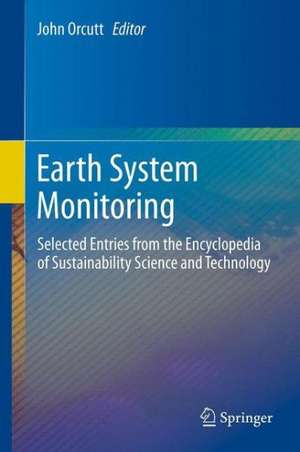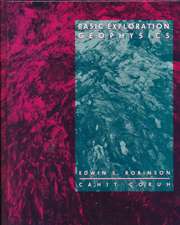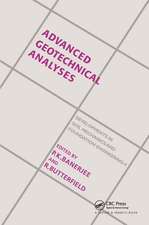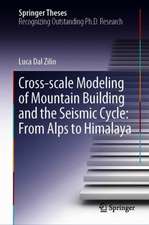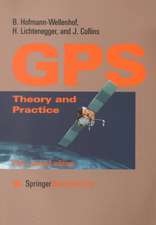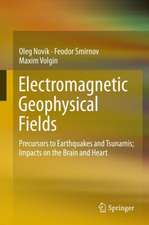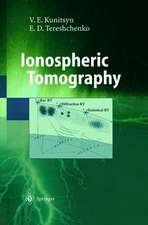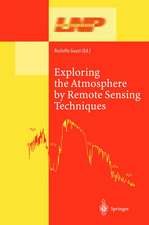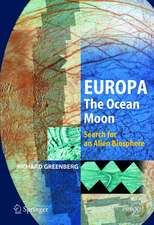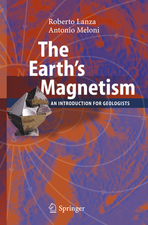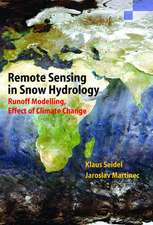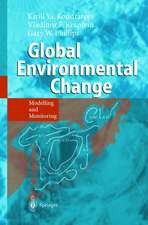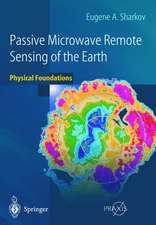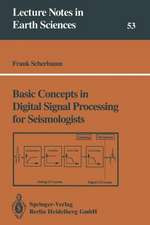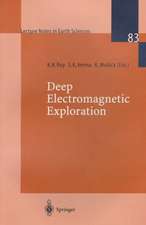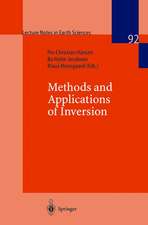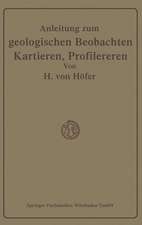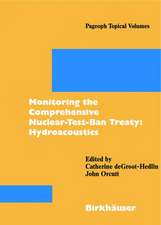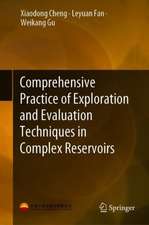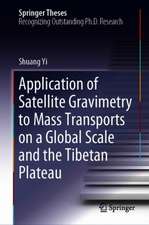Earth System Monitoring: Selected Entries from the Encyclopedia of Sustainability Science and Technology
Editat de John Orcutten Limba Engleză Hardback – 11 dec 2012
| Toate formatele și edițiile | Preț | Express |
|---|---|---|
| Paperback (1) | 1227.67 lei 6-8 săpt. | |
| Springer – 28 ian 2015 | 1227.67 lei 6-8 săpt. | |
| Hardback (1) | 1232.26 lei 6-8 săpt. | |
| Springer – 11 dec 2012 | 1232.26 lei 6-8 săpt. |
Preț: 1232.26 lei
Preț vechi: 1502.76 lei
-18% Nou
Puncte Express: 1848
Preț estimativ în valută:
235.78€ • 246.20$ • 194.71£
235.78€ • 246.20$ • 194.71£
Carte tipărită la comandă
Livrare economică 15-29 aprilie
Preluare comenzi: 021 569.72.76
Specificații
ISBN-13: 9781461456834
ISBN-10: 1461456835
Pagini: 524
Ilustrații: VI, 518 p.
Dimensiuni: 155 x 235 x 32 mm
Greutate: 0.86 kg
Ediția:2013
Editura: Springer
Colecția Springer
Locul publicării:New York, NY, United States
ISBN-10: 1461456835
Pagini: 524
Ilustrații: VI, 518 p.
Dimensiuni: 155 x 235 x 32 mm
Greutate: 0.86 kg
Ediția:2013
Editura: Springer
Colecția Springer
Locul publicării:New York, NY, United States
Public țintă
Upper undergraduateCuprins
1. Earth System Monitoring, Introduction.- 2. Airborne and Space-borne Remote Sensing of Cryosphere.- 3. Aircraft and Space Atmospheric Measurements Using Differential Absorption Lidar (DIAL).- 4. Contemporary Sea Level Variations, Observations and Causes.- 5. Coral Reef Ecosystems.- 6. Earth System Environmental Literacy.- 7. Gravity Recovery and Climate Experiment (GRACE): Detection of Ice Mass Loss, Terrestrial Mass Changes, and Ocean Mass Gains.- 8. Heat Content and Temperature of the Ocean.- 9. Hurricane and Monsoon Tracking with Driftsondes.- 10. Large-Scale Ocean Circulation: Deep Circulation and Meridional Overturning.- 11. Long-Term Ecological Research Network.- 12. Ocean Acidification.- 13. Ocean Evaporation and Precipitation.- 14. Ocean Observatories and Information: Building a Global Ocean Observing Network.- 15. Oil Spill Remote Sensing.- 16. Remote Sensing Applications to Ocean and Human Health.- 17. Remote Sensing of Natural Disasters.- 18. Remote Sensing of Ocean Color.- 19. Volcanoes, Observations and Impact.- Index.
Textul de pe ultima copertă
Modern Earth System Monitoring represents a fundamental change in the way scientists study the Earth System. In Oceanography, for the past two centuries, ships have provided the platforms for observing. Expeditions on the continents and Earth’s poles are land-based analogues. Fundamental understanding of current systems, climate, natural hazards, and ecosystems has been greatly advanced. While these approaches have been remarkably successful, the need to establish measurements over time can only be made using Earth observations and observatories with exacting standards and continuous data. The 19 peer-reviewed contributions in this volume provide early insights into this emerging view of Earth in both space and time in which change is a critical component of our growing understanding.
Presents 19 authoritative, peer-reviewed entries from the Encyclopedia of Sustainability Science and Technology
Covers a wide range of data collection platforms, including satellite remote sensing, aerial surveys, and land- and ocean-based monitoring stations
Features a glossary of key terms and a concise definition of the subject for each contribution
Written for an audience of undergraduate and graduate students, as well as professionals in academia, industry, and government
Presents 19 authoritative, peer-reviewed entries from the Encyclopedia of Sustainability Science and Technology
Covers a wide range of data collection platforms, including satellite remote sensing, aerial surveys, and land- and ocean-based monitoring stations
Features a glossary of key terms and a concise definition of the subject for each contribution
Written for an audience of undergraduate and graduate students, as well as professionals in academia, industry, and government
Caracteristici
Presents 19 authoritative, peer-reviewed entries from the Encyclopaedia of Sustainability Science and Technology Covers a wide range of data collection platforms, including satellite remote sensing, aerial surveys, and land- and ocean-based monitoring stations Features a glossary of key terms and a concise definition of the subject for each contribution Written for an audience of undergraduate and graduate students, as well as professionals in academia, industry, and government Includes supplementary material: sn.pub/extras
